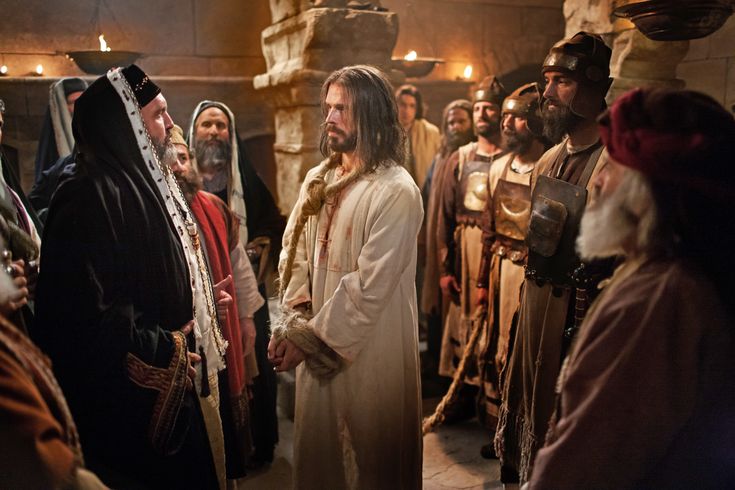“Father, if you are willing, remove this cup from me. Nevertheless, not my will, but yours, be done.” – Luke 22:42

The crucifixion of Jesus Christ is a pivotal event in Christian theology and history, with deep theological, political, and social significance. There are several factors that contributed to Jesus’ crucifixion, each shedding light on the complex circumstances surrounding his death.
To begin with, Jesus’ teachings and actions challenged the religious and political authorities of his time. He preached about love, forgiveness, and the kingdom of God, which often clashed with the established religious doctrines of the Jewish leaders and the Roman authorities. His critique of religious hypocrisy and corruption threatened the power structures in place, leading to his condemnation by both Jewish and Roman leaders.
Jesus’ declaration that He is the Son of God and the Messiah was considered blasphemous by the Jewish religious leaders. They saw Him as a threat to their authority and influence over the Jewish people. Jesus’ popularity among the masses posed a challenge to their leadership, prompting them to seek ways to discredit and eliminate Him. His trial before the Sanhedrin, the Jewish council resulted in charges of blasphemy, which carried the penalty of death under Jewish law.

From the perspective of the Roman authorities, Jesus’ growing influence and popularity among the Jewish population posed a potential threat to Roman rule in Judea. The Roman governor, Pontius Pilate was primarily concerned with maintaining order and stability in the region. When the Jewish leaders brought Jesus before him, accusing Him of claiming to be a king and inciting rebellion against Rome, Pilate saw it as a political issue rather than a religious one. Despite finding no guilt in Jesus, Pilate yielded to the pressure from the crowd and the Jewish leaders, ultimately sentencing Jesus to death by crucifixion.
Jesus was crucified for being obedient to God’s will and not that of Man.
The Will of the Father
Jesus came to earth to carry out His Father’s will of creating a relationship between God and His people, so that they may know and believe in Him.

In the Christian faith, the concept of Jesus doing the will of His Father stands as a cornerstone of belief. This profound principle encapsulates the obedience, love, and divine purpose that Jesus embodied during His time on Earth. Through His teachings, actions, and ultimate sacrifice, Jesus exemplified a profound commitment to fulfilling the will of His Father, thereby offering humanity a model of faithfulness, humility, and redemption.
Central to understanding Jesus’ obedience to His Father’s will is recognizing the relationship between Jesus and God as Father and Son. Throughout the New Testament, Jesus frequently refers to God as His Father, emphasizing the intimate connection and unity between them. This relationship forms the basis of Jesus’ obedience, as He seeks to align His actions and decisions with the divine will of His Father.
The Gospels portray Jesus as unwavering in His dedication to fulfilling the Father’s will. In the Gospel of John, Jesus declares,
“For I have come down from heaven, not to do my own will, but the will of him who sent me.” – John 6:38
This statement encapsulates Jesus’ primary mission on earth – to carry out the divine plan of salvation orchestrated by His Father. Jesus’ obedience is not driven by personal ambition or self-interest but by a deep commitment to fulfilling the purpose for which He was sent. Jesus’ obedience to the Father’s will extends beyond His own personal sacrifice to encompass His teachings and ministry. Throughout His earthly ministry, Jesus consistently prioritizes proclaiming the kingdom of God, teaching the truths of scripture, and demonstrating compassion and mercy to all people. His words and actions reflect a profound alignment with the values and priorities of His Father’s kingdom, as He seeks to fulfill the divine mandate entrusted to Him. Even when He was hanging from the cross in agony and pain, Jesus continued carrying out the divine mandate – He asked God to forgive those who were crucifying Him for they did not know what they’re doing.
“Forgive Them”
To comprehend the significance of Jesus’ plea for forgiveness, it’s important to examine the context in which it was spoken. Crucifixion was a brutal form of execution reserved for the most heinous criminals, intended not only to inflict excruciating physical pain but also to humiliate and dehumanize the condemned. Despite enduring unimaginable suffering, Jesus uttered words of compassion rather than condemnation.

In asking for forgiveness for His executioners, Jesus demonstrated the depth of His love and the extent of His mission. His forgiveness was not limited to those who followed Him or treated Him with kindness; it extended even to those actively participating in His crucifixion. This act challenges the conventional notions of justice and retribution, emphasizing the transformative power of forgiveness to break the cycle of violence and hatred.
Central to Jesus’ plea for forgiveness is the acknowledgment of human ignorance. He recognized that those responsible for His crucifixion were acting out of ignorance and spiritual blindness. Their actions were not driven by malice or understanding but by a lack of awareness of the divine truth and the consequences of their deeds. In forgiving them, Jesus extended grace to those who were unaware of the gravity of their actions.
Jesus’ words on the cross serve as a model of compassion and empathy for all humanity. Instead of harboring resentment or seeking revenge, He chose to extend forgiveness, embodying the principles He preached throughout His ministry. His actions exemplify the transformative potential of forgiveness to heal wounds, reconcile relationships, and restore dignity.
The Ignorant
“They are darkened in their understanding, alienated from the life of God because of the ignorance that is in them, due to their hardness of heart.” – Ephesians 4:18
Ignorance serves as a fertile ground for the proliferation of sin. When individuals lack understanding or awareness of ethical guidelines, they are more susceptible to engaging in behaviors that contravene moral standards. For example, someone unaware of the consequences of their actions may harm others inadvertently, yet still be held accountable for the harm caused. Moreover, ignorance can foster a mindset of complacency or indifference towards moral responsibilities. Individuals may rationalize their actions or justify wrongdoing due to a lack of awareness regarding the ethical implications of their behavior. In such cases, ignorance becomes a veil that obscures moral discernment, leading individuals astray from virtuous paths.

The ignorance of those who crucified Jesus stems partly from their failure to grasp the true essence of his message. Instead of recognizing his teachings of love, forgiveness, and inclusivity, they viewed him through a lens of threat to their authority. Furthermore, the ignorance manifested in a lack of understanding of Jesus’ identity and mission. Many viewed him solely as a political agitator or a blasphemer, failing to comprehend his divine nature and the spiritual significance of his mission. This limited perception led to actions driven by fear, jealousy, and misunderstanding rather than genuine inquiry or discernment. The ignorance behind Jesus’ crucifixion is also evident in the failure to recognize the signs and fulfillments of prophecy.
Throughout the Old Testament, numerous prophecies foretold the coming of a Messiah who would bring salvation and redemption. Yet, when Jesus fulfilled these prophecies through his life, teachings, and miracles, many remained blind to the truth, clinging to their preconceived notions and vested interests. The ignorance of those who crucified Jesus is underscored by their lack of empathy and compassion. The brutality of crucifixion, a common form of execution in Roman times, reflects a callous disregard for human dignity and suffering. Those responsible for Jesus’ crucifixion failed to see beyond their own interests and ambitions, disregarding the inherent value and humanity of the one they condemned to death.
The Resurrection
Jesus’s resurrection gives rise to God’s transcendence.
In the context of theology, transcendence refers to the idea of God’s existence beyond the limitations of the physical universe. It implies a state of being beyond comprehension, beyond the constraints of time, space, and human perception. This notion suggests that God is not bound by the laws of nature or confined within the boundaries of the cosmos but rather transcends them.

The concept of God’s transcendence holds significant implications for understanding the nature of divinity and human existence. It emphasizes the incomprehensibility of God, highlighting the limitations of human intellect in grasping the fullness of the divine. This recognition humbles individuals, fostering a sense of awe, reverence, and wonder towards the divine. God’s transcendence underscores the notion of God’s sovereignty and omnipotence. As a transcendent being, God is perceived as the ultimate source of all existence, surpassing any worldly authority or power. This understanding instills a sense of trust and reliance on God’s providence, especially in times of uncertainty and adversity.

The recognition of God’s transcendence has profound implications for human existence and spirituality. It invites individuals to transcend their egoistic desires and attachments, seeking a deeper connection with the divine. This pursuit of transcendence often involves spiritual practices such as meditation, prayer, and contemplation, aimed at transcending the limitations of the material world. The awareness of God’s transcendence fosters a sense of humility and reverence towards all aspects of creation. It encourages individuals to acknowledge their interconnectedness with the divine and the entire cosmos, promoting a sense of harmony, compassion, and reverence for all life forms.
The Significance of Easter
Easter commemorates the resurrection of Jesus Christ, as narrated in the New Testament of the Bible. For Christians, this event signifies the triumph of life over death, symbolizing salvation and eternal life. The crucifixion and resurrection of Jesus are central tenets of Christian theology, forming the foundation of the Christian faith. Easter Sunday, the culmination of Holy Week, serves as a reminder of divine love, forgiveness, and redemption.

Easter coincides with the arrival of spring in many parts of the world, a season synonymous with renewal and rebirth. The imagery of blooming flowers, chirping birds, and longer daylight hours mirrors the themes of Easter – rejuvenation and new beginnings. Just as nature emerges from the dormancy of winter, Easter invites individuals to shed past burdens and embrace the promise of a fresh start. It is a time for spiritual renewal, introspection, and growth.

On a personal level, Easter provides an opportunity for reflection and spiritual growth. It prompts individuals to contemplate their beliefs, values, and priorities, encouraging them to cultivate a deeper sense of purpose and meaning in their lives. Whether through attending religious services, spending time with loved ones, or engaging in acts of kindness and charity, Easter invites individuals to embrace the spirit of love, compassion, and reconciliation.













